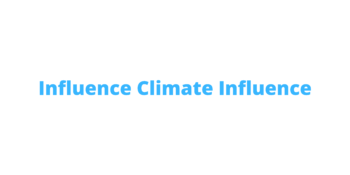Knowing that social media integration is crucial for your company and knowing how much can be gained when individual leaders learn to comfortably engage with it are two different things. I’ve only recently come to understand the distinction, and particularly in relation to business-to-business (B2B) purposes. Social media engagement – as professional development – is the next wave in leadership.
My own enlightenment came about during a lively phone conversation with a higher education leader who had challenged me to help her see why she should make time for writing blog posts and building social media relationships. At the end of our conversation, she was more or less sold on the idea of diving in, and then said something along the lines of: but, we don’t have much marketing budget [to work with a social engagement coach]. That might have been where we left the conversation, had I not recalled a comment another business leader friend had made to me a few weeks earlier (paraphrased):
“Most companies have professional development budgets that get used for traditional education seminars, workshops or conferences, but social media coaching – which falls under that line item – is what most business leaders really need.”
Boom. That changes things a bit, doesn’t it?
On Social-izing CEOs
Weber Shandwick worked with KRC Research to survey 630 senior professionals from around the world and published their results in mid-2013, in “The Social CEO: Executives Tell All” (It is worth downloading) . Their research found that 76% of executives think it is a good idea for CEOs to be social, and, as Weber Shandwick put it on their site:
“Whether it’s on the company website, blog, or on their own personal social media channels, the very act of telling the story empowers them to exert a high degree of influence over the discussion surrounding their company, both internally and externally, as well as engage with employees and the general public. “
I wholeheartedly agree, but want to bring it back to the marketing versus professional development distinction: Of course for company site purposes, what the leader does and shares can be considered marketing-related. However, personal social media accounts, by virtue of the fact that they have to be authentic to be trusted, cannot be run by a team or (obviously) put through a legal filter. And too, though it is scary, the occasional mistake on a personal account is to be expected and should be allowed for. Since the leader is, well, the leader, I’m assuming they can be trusted by corporate communications decision-makers to be smart, if fallible, in what and how they share.
And, yes, what I am talking about here might also be termed “personal branding.” However, I’d argue that calling it that confuses the issue about how much social media engagement develops a professional in ways that also and significantly serve the corporation that employs them. In other words, any individual leader getting smart about developing personal brand through socialized thought leadership will be a beyond fantastic reflection on their organization. Why wouldn’t you budget for that?
“Social” Professional Development Delivers Double Whammy
The reality is that it definitely takes practice and encouragement for an individual, no matter how motivated or savvy they are as a business leader, to reach the comfort level of being his or her most human self on a particular social channel. And this is where the professional development budget for coaching comes in, and actually has the potential to produce a double whammy for each dollar spent.
For every key leader trained, that corporation gets an additional “socialized” and trusted voice to help amplify their products, services and stories. There is so much more than marketing to it. As someone who works most often with corporate social responsibility and sustainability leaders, developing such a human voice via social media means BIG opportunity to amplify great works, find collaborators and generally elevate the discussion of doing responsible and profitable business overall.
Sure it can be powerful for a corporate brand to use various social channels and rally consumers near and far to know and buy their name (and many do it so well). However, the power I see for deeper B2B purposes is in the individual executive feeling truly comfortable building social capital through a particular social channel or two. That can become influence, times ten.
Maybe it boils down to this: social media as marketing is the first wave of digital influence. Seeing executive level engagement with social media as professional development is the wave of the future. And, it is about to crash down on you (so ride it).
Additional resource:
For insight into how anti-social CEOs can get more social, see this Forbes piece by Joshua Steimle. My caveat: Realizing that most new-to-social business leaders can be overwhelmed by the lists of all the channels they “should” consider participating in, I’d recommend either starting with LinkedIn or Twitter, and getting quite comfortable (this could take months, if not a year), before adding more.
Special thanks to Twang Photography for use of the image.





